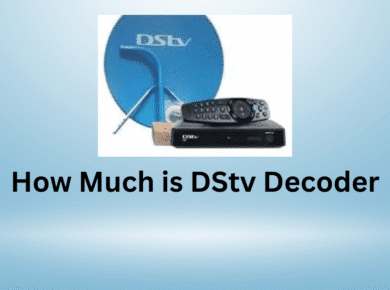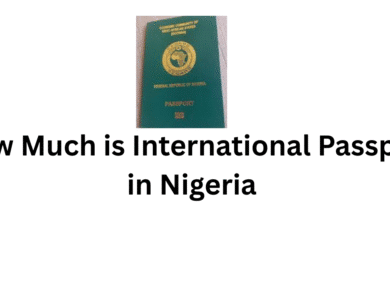Are you a small business owner, an aspiring fashion designer, or a serious hobbyist looking to upgrade your sewing setup? The world of industrial sewing machines can seem intimidating, especially when it comes to understanding the cost. Unlike their domestic counterparts, these heavy-duty workhorses are a significant investment, but they offer unparalleled speed, durability, and specialized functions that can transform your productivity.
This article will break down the factors that influence the price of an industrial sewing machine, from brand and type to whether you choose to buy new or used. We’ll give you a clear picture of what you can expect to pay, helping you make an informed decision that’s right for your needs and budget.
How Much is Industrial Sewing Machine
The price of an industrial sewing machine is not a one-size-fits-all figure. It’s a broad spectrum that can vary dramatically based on a number of key factors. While you can find some basic, entry-level models for a few hundred dollars, advanced, specialized machines can cost several thousand.
In many regions, a new industrial straight-stitch machine from a reputable brand might start from around ₦350,000, while more complex machines like overlock or buttonhole machines can range from ₦400,000 to over ₦2,000,000 or more.
Key Factors That Influence the Price
Here’s a detailed look at what drives the cost of these machines:
- Type of Machine: The most significant factor is the machine’s function.
- Lockstitch (Straight-Stitch) Machines: These are the most common and generally the most affordable industrial machines, used for basic seams.
- Overlock (Serger) Machines: These are essential for finishing edges and preventing fraying, and they tend to be more expensive than basic lockstitch machines.
- Specialty Machines: Machines designed for specific tasks like buttonholes, button attaching, tacking, or zigzag stitching come at a premium due to their specialized engineering.
- Walking Foot Machines: Ideal for heavy materials like leather, canvas, and upholstery, these machines have a higher price tag because of their robust feeding mechanism.
- Cylinder Bed & Post Bed Machines: These are specialized for sewing three-dimensional items like bags, shoes, and hats and are typically on the higher end of the price scale.
- Brand and Origin: Just like with cars, brand reputation plays a huge role. Well-established brands with a history of quality and precision, such as Juki, Brother, and Singer, often command higher prices. Machines from a different country of origin may also have a price difference.
- New vs. Used: This is a major consideration for many buyers.
- New Machines: A new machine offers the latest technology, a full warranty, and the peace of mind that comes with a brand-new product. They also often feature modern conveniences like energy-efficient servo motors and automated functions.
- Used Machines: A used industrial sewing machine can be a great way to save money, with prices often being a fraction of the cost of a new one. However, it’s crucial to inspect the machine’s condition, as it may lack a warranty and could require repairs.
- Features and Automation: The more advanced the features, the higher the cost.
- Clutch vs. Servo Motors: Older, used machines often have loud and less efficient clutch motors, while new machines typically come with quiet and energy-efficient servo motors.
- Automation: Machines with automated functions like thread trimming, needle positioning, and programmable stitch patterns are more expensive but can significantly increase efficiency and reduce manual labor.
- Table and Motor: Some prices may only include the machine head, with the table, stand, and motor sold separately. It’s important to clarify what is included in the quoted price.
What Brand is Best For an Industrial Sewing Machine?
1. Juki
Often considered the gold standard in the industrial sewing machine industry, Juki is a Japanese brand renowned for its precision, durability, and a wide range of machines for various applications.
- Strengths: Juki is synonymous with reliability. Their machines are known for exceptional stitch quality and the ability to handle long, continuous production runs without faltering. They offer a comprehensive lineup, from high-speed lockstitch machines (like the popular Juki DDL-8700) to specialized overlock, buttonhole, and walking foot models. Many newer Juki machines also feature energy-efficient servo motors and advanced automation.
- Best For: High-volume garment manufacturing, professional tailors, and businesses that require a consistent, high-quality output for a variety of projects.
2. Brother
Another Japanese powerhouse, Brother is a top contender known for its innovation and user-friendly designs. They offer a strong balance of performance and affordability.
- Strengths: Brother machines are celebrated for their modern features, including digital controls, intuitive interfaces, and excellent after-sales support. While they are incredibly reliable and durable, they often focus on general garment production and can be a great fit for businesses that need a machine that is both powerful and easy to operate.
- Best For: Small to medium-sized businesses, startups, and those who prioritize a machine with modern, automated features and a reputation for excellent support.
3. Consew
For those working with thick, tough materials, Consew is a brand that stands out. They have built a strong reputation for producing heavy-duty machines that are true workhorses.
- Strengths: Consew’s specialty lies in walking foot and compound feed machines, making them a top choice for upholstery, leather goods, canvas, and other challenging fabrics. Their machines are known for their robust construction and ability to handle multiple layers without skipping stitches. While they may not have all the automated features of more modern brands, their focus on raw power and durability is unmatched for specific tasks.
- Best For: Upholstery shops, leatherworkers, and businesses that need a machine specifically designed for heavy-duty materials.
Other Notable Brands to Consider
- Singer: A household name, Singer also produces industrial machines. While their heavy-duty home machines are popular, their true industrial models offer a more affordable entry point into the market. They are a good option for general stitching tasks and small businesses, but they may not be as robust or feature-rich as a Juki or Brother for large-scale, heavy-duty applications.
- Jack: A newer player in the market, Jack has quickly gained popularity for offering a budget-friendly alternative to the bigger brands. They provide reliable performance with energy-saving direct-drive motors, making them an excellent choice for startups and budget-conscious buyers.
- Bernina: Known for their high-end, precision home machines, Bernina also offers industrial models, particularly in the realm of high-end embroidery and specialized quilting. Their machines are a significant investment but offer exceptional build quality and user-friendly features for intricate designs.
- Pfaff: This German brand is synonymous with precision engineering. Pfaff machines, especially those with their Integrated Dual Feed (IDT) system, are highly valued for their high-precision work with technical textiles and decorative stitching. They often come at a higher price point but are a fantastic choice for complex projects where precision is paramount.
Conclusion
Ultimately, the best approach is to define your specific needs. Are you sewing heavy-duty materials for upholstery or high-volume garments? Your answer will guide you toward the right type of machine and, consequently, a realistic budget. By understanding these factors, you can find a machine that not only fits your financial plan but also serves as a powerful and reliable asset to your craft or business for years to come.













